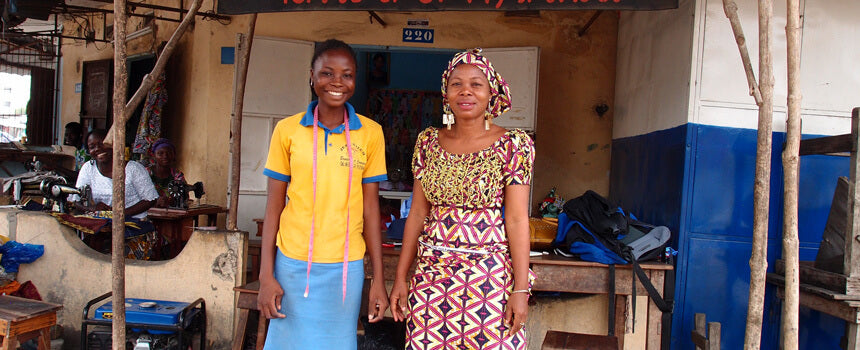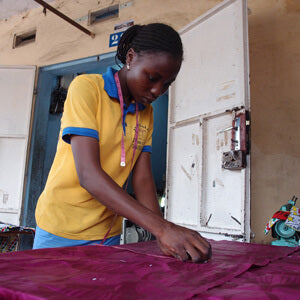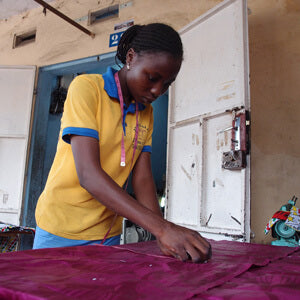Day 17
Sewing materials for a trainee in Benin
 Fully in fashion: from market girl to seamstress
Fully in fashion: from market girl to seamstress


Vocational training and psychosocial support for girls in Benin

need
An education for girls who otherwise have little chance of a better future.
activity
Oxfam's partner places girls in proven tailoring businesses and supports their training.
Measurable performance
The training for 15 girls born in 2016 has begun. The necessary materials have been procured and distributed.
Result
After three years, 45 girls have completed three years of vocational training. Educational work on children's rights was carried out.
Systemically relevant impact
The girls were able to build their own lives through the training. A change in awareness and practices regarding children's rights has begun.
background


The good deed
AboutBenin
Porto Novo
Capital city
10 323 500
Population
822 USD
Gross domestic product
per capita per year

165
Human Development Index
(Human Development Index)



